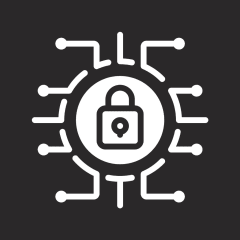Penetration testers and ethical hackers are often used interchangeably, as they share many similarities in terms of their roles and objectives. However, there are subtle differences between the two:
Penetration Tester
Penetration testing is a specific activity within the broader scope of ethical hacking. A penetration tester is a cybersecurity professional who performs authorized assessments of computer systems, networks, and applications to identify vulnerabilities and assess the security posture of an organization. They simulate real-world attack scenarios to identify weaknesses that malicious hackers could exploit. Penetration testers follow a structured methodology to identify, exploit, and document vulnerabilities, and they provide recommendations for remediation. Their primary goal is to evaluate and improve the security defenses of an organization.
Ethical Hacker
Ethical hacking encompasses a broader range of activities beyond just penetration testing. Ethical hackers, also known as white hat hackers, are cybersecurity professionals who specialize in identifying vulnerabilities and weaknesses in computer systems, networks, and applications. Like penetration testers, ethical hackers conduct authorized assessments to identify vulnerabilities and assess the security posture of an organization. However, ethical hackers may go beyond the scope of traditional penetration testing and employ creative, out-of-the-box thinking to identify security flaws. Their approach may involve utilizing unconventional techniques or exploring new attack vectors to discover vulnerabilities that may have been overlooked. Ethical hackers also work to secure systems and provide recommendations for mitigating risks.
In essence, the terms "penetration tester" and "ethical hacker" are often used interchangeably, but the distinction lies in the approach and mindset of the professional. Penetration testers follow a more structured methodology, while ethical hackers tend to have a more creative and exploratory mindset. Some individuals may identify themselves primarily as penetration testers, while others may identify as ethical hackers, depending on their specific skill set, interests, and the types of engagements they undertake. Both roles play a crucial role in helping organizations identify and address vulnerabilities to enhance their overall cybersecurity defenses.
Related Careers

Incident Responder
An incident responder is a cyber security professional responsible for identifying, investigating, and mitigating security incidents within an organization.

Cryptanalyst
A cryptanalyst is a specialist in the field of cryptography who focuses on analyzing cryptographic systems and breaking codes to decipher encrypted information.

CISO
A Chief Information Security Officer (CISO) is a senior executive responsible for managing and overseeing an organization's information security program.

Security Software Developer
A security software developer is responsible for designing and developing software applications with a strong focus on security.

Cryptographer
A cryptographer specializes in the field of cryptography, which involves the study and practice of secure communication and data protection.

Security Architect
A security architect is a cybersecurity professional responsible for designing and implementing secure systems, networks, and applications to protect an organization's digital assets from cyber threats and attacks.

Penetration Tester
A penetration tester evaluates the security of computer systems, networks, and applications by simulating real-world attacks.

Information Security Director
An information security director is responsible for leading and overseeing the information security function within an organization.

Digital Forensics Analyst
Digital forensics analysts investigate and analyze digital evidence to uncover information related to cybercrime, data breaches, or other digital incidents.

Red Teamer
A red teamer specializes in conducting adversarial simulations and assessments of an organization's security measures, with the goal of identifying vulnerabilities and weaknesses.

Blue Teamer
Blue teamers are cybersecurity professionals who specialize in defensive security measures and strategies.

SOC Manager
A Security Operations Center (SOC) manager is responsible for overseeing the day-to-day operations and strategic direction of a SOC.

Security Engineer
A security engineer is responsible for safeguarding an organization's information technology infrastructure and data from potential threats, vulnerabilities, and cyberattacks.

Ethical Hacker
An ethical hacker is a cybersecurity professional who is hired by an organization to identify and fix vulnerabilities in their computer systems, networks, and applications.

Information Security Analyst
An information security analyst is responsible for safeguarding an organization's computer systems and networks against cyber threats and unauthorized access.

Cybercrime Investigator
A cybercrime investigator is responsible for investigating and combating cybercrimes.

Information Security Manager
An information security manager is responsible for overseeing and managing the information security program within an organization.

IT Security Consultant
An IT security consultant provides expert advice and guidance on information technology security matters to organizations.

